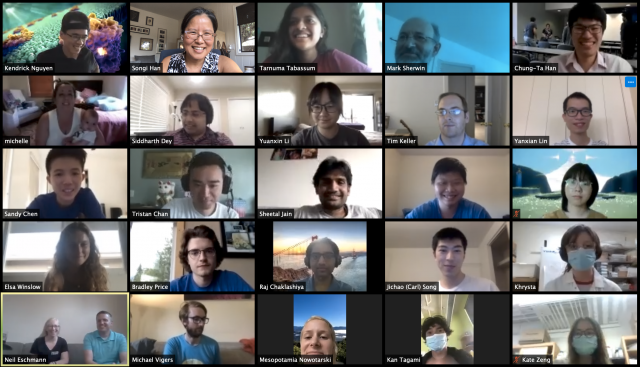Chung-Ta Han Completes His Ph.D. for "Investigating Structure-Function Relationship of Proteorhodopsin"
Congratulations Dr. Chung-Ta Han on completing his Ph.D.!

A graduate student in the Department of Chemical Engineering, Chung-Ta joined the Han Lab in 2015 after graduating from the National Taiwan University, Taiwan. Since then, he has worked on the proteorhodopsin, specifically on how different environmental factors affect its function. His work was on the development of a distance measuring tool between protein helices that would allow him and his team to study how protein functions are modulated through the approach of protein structure dynamics.
Chung-Ta's dissertation is on the topic "Investigate the structure and function relationship of transmembrane proteins by studies of Proteorhodopsin". Transmembrane protein is an essential category of biomolecules that resides in cell membranes and plays important roles in biological functions including ion transport, signal transductions, and enzymatic reactions. Due to the complexity of the cell membrane environment, it is experimentally challenging to elucidate the role of different factors on modulating the function of transmembrane proteins. Chung-Ta used Proteorhodopsin (PR), a light-activated proton pump originated from marine bacteria, as a model to investigate the influence of different modulators on the structure and function of transmembrane proteins.
In his talk, Chung-Ta discussed the effect of oligomer assemblies, the net charge of phospholipid headgroups in liposomes and the ion concentration of buffers on modulating the proton transport function of PR, which includes the population of active PR with vectorial proton transport capability and the proton transport kinetics. His study on PR not only adds value to biophysical understanding by elucidating the role of different factors on modulating its proton transport function and structural properties but also provides a guideline for optimizing functions of proteins that are controlled by a similar mechanism as PR in bioengineering applications.
During his time in the Han Lab, Chung-Ta was also the social officer in charge of most extracurricular activities in the Han Lab. His bright personality has made everyone happy around him.
Congratulations again, Dr. Chung-Ta Han!